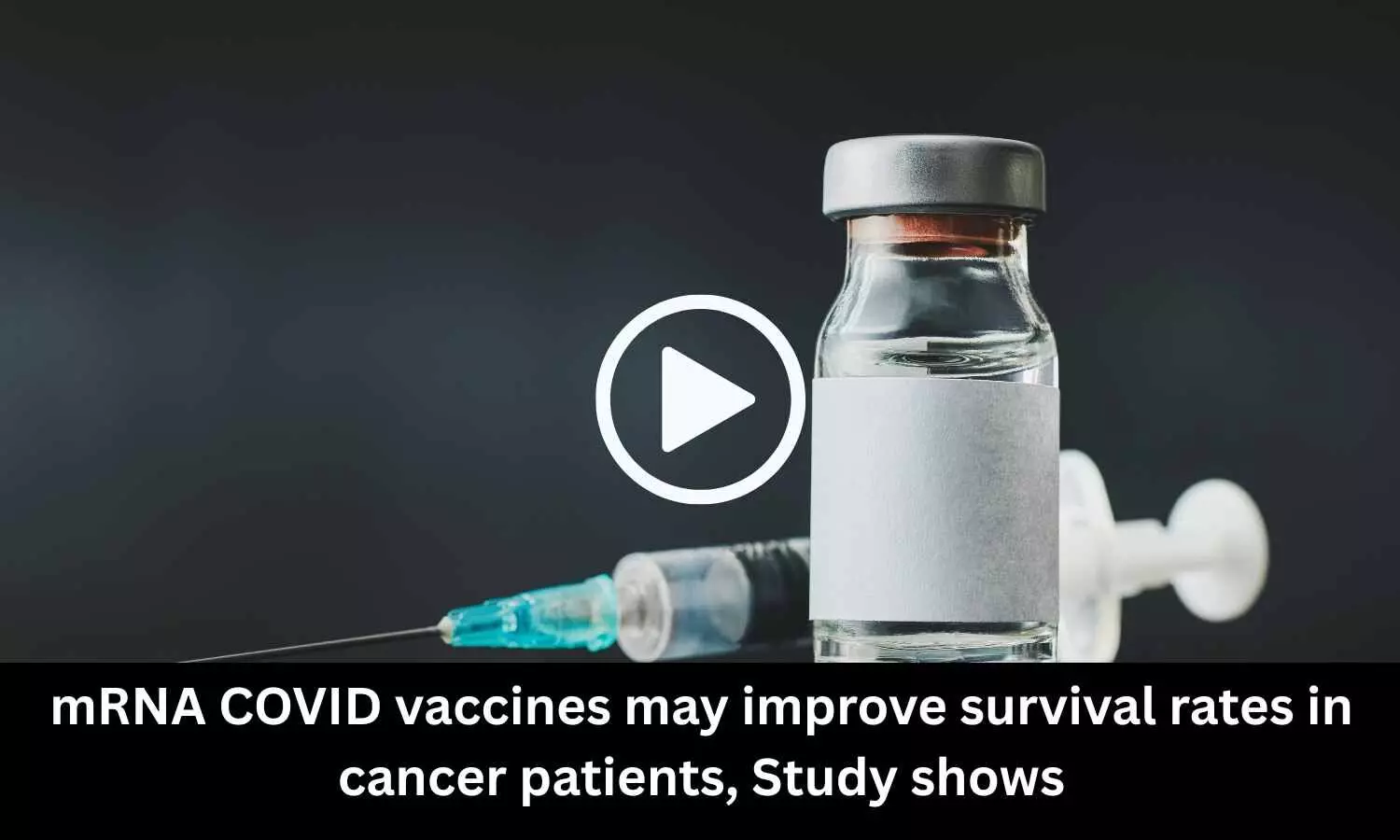mRNA COVID vaccines may improve survival rates in cancer patients, Study shows
- byDoctor News Daily Team
- 29 October, 2025
- 0 Comments
- 0 Mins

Scientists have discovered that mRNACOVID-19 vaccinesdo more than just fight infection-they may also significantly improve survival incancerpatients undergoing immunotherapy. A recent study published inAdvanced Researchanalyzed data from over 1,000 patients treated between 2019 and 2023 at the University of Texas MD Anderson Cancer Center. Those who received an mRNA vaccine within 100 days of starting immune checkpoint therapy were twice as likely to be alive three years later compared to unvaccinated patients. mRNA COVID-19 vaccines may helpimmunotherapyby boosting the immune system’s ability to recognize and attackcancer cells. When given around the time patients start checkpoint inhibitor treatments-drugs that “unmask” cancer for the immune system-these vaccines act like an alarm, alerting immune cells to target tumors more effectively. This study showed that cancer patients vaccinated within 100 days of starting immunotherapy were twice as likely to survive three years later. The research further suggests that mRNA vaccines “train” the immune system, strengthening its ability to recognize and attack cancer cells, especially when combined with checkpoint inhibitors. These immunotherapy drugs help reveal cancer cells that evade immune detection. Early animal studies and clinical observations support the idea that mRNA vaccines act as a “wake-up call” for the immune system, enhancing tumor recognition and destruction. Lab studies showed that vaccination raised PD-L1 protein on tumors, which checkpoint inhibitors then block, allowing the immune system to target cancer more effectively. The finding builds on earlier work by University of Florida researchers who initially developed personalized mRNA cancer vaccines and noticed that mRNA vaccines for infectious diseases might have similar effects. These insights are leading to plans for a Phase III trial testing mRNA vaccines as routine complements to immunotherapy, especially for “cold” tumors that usually resist treatment. In advanced lung and metastatic melanoma cancers, vaccinated patients had notably longer survival times, sometimes nearly doubling expected outcomes. Lead researcher Dr. Adam Grippin called the results “extraordinary,” highlighting the potential for repurposing mRNA vaccine technology to transform cancer therapy worldwide. While more research is needed to verify mechanisms and optimize treatment, this innovative strategy offers hope for better outcomes and new avenues in oncologic care. Reference:Grippin, A.J., Marconi, C., Copling, S. et al. SARS-CoV-2 mRNA vaccines sensitize tumours to immune checkpoint blockade. Nature (2025). https://doi.org/10.1038/s41586-025-09655-y
Disclaimer: This website is designed for healthcare professionals and serves solely for informational purposes.
The content provided should not be interpreted as medical advice, diagnosis, treatment recommendations, prescriptions, or endorsements of specific medical practices. It is not a replacement for professional medical consultation or the expertise of a licensed healthcare provider.
Given the ever-evolving nature of medical science, we strive to keep our information accurate and up to date. However, we do not guarantee the completeness or accuracy of the content.
If you come across any inconsistencies, please reach out to us at
admin@doctornewsdaily.com.
We do not support or endorse medical opinions, treatments, or recommendations that contradict the advice of qualified healthcare professionals.
By using this website, you agree to our
Terms of Use,
Privacy Policy, and
Advertisement Policy.
For further details, please review our
Full Disclaimer.
Recent News
mRNA COVID vaccines may improve survival rates in...
- 29 October, 2025
Scientists discover unexpected link between gray h...
- 29 October, 2025
Eating peanuts during pregnancy may affect how a c...
- 29 October, 2025
New Drug-Eluting Balloon Matches Standard Stents i...
- 29 October, 2025
Daily Newsletter
Get all the top stories from Blogs to keep track.


0 Comments
Post a comment
No comments yet. Be the first to comment!